Advertisement
As Steward Health flails, once-supporters of Ralph de la Torre now criticize the CEO
ResumeSteward Health Care, the troubled operator of nine Massachusetts hospitals, is inextricably linked to the drive and personality of its first — and only — CEO, the once highly regarded Dr. Ralph de la Torre.
Many in the health care industry were unwilling to speak on the record about de la Torre, but in a dozen interviews, some blamed the company's flagging finances on greed — and some are taking particular aim at de la Torre, including those who helped propel his career.
Steward executives said Friday in an internal memo to staff they are moving forward on a deal to stabilize the company's finances in the short-term, but there are still many questions about the future. State officials are closely monitoring Steward, and company executives have indicated they may seek a buyer for one or more of its hospitals.
De la Torre's rise to lead one of the nation's largest private, for-profit hospital operators — and the third-largest hospital operator in Massachusetts — began in Boston, where after nine years as a prominent cardiac surgeon, he launched his career as a hospital executive.
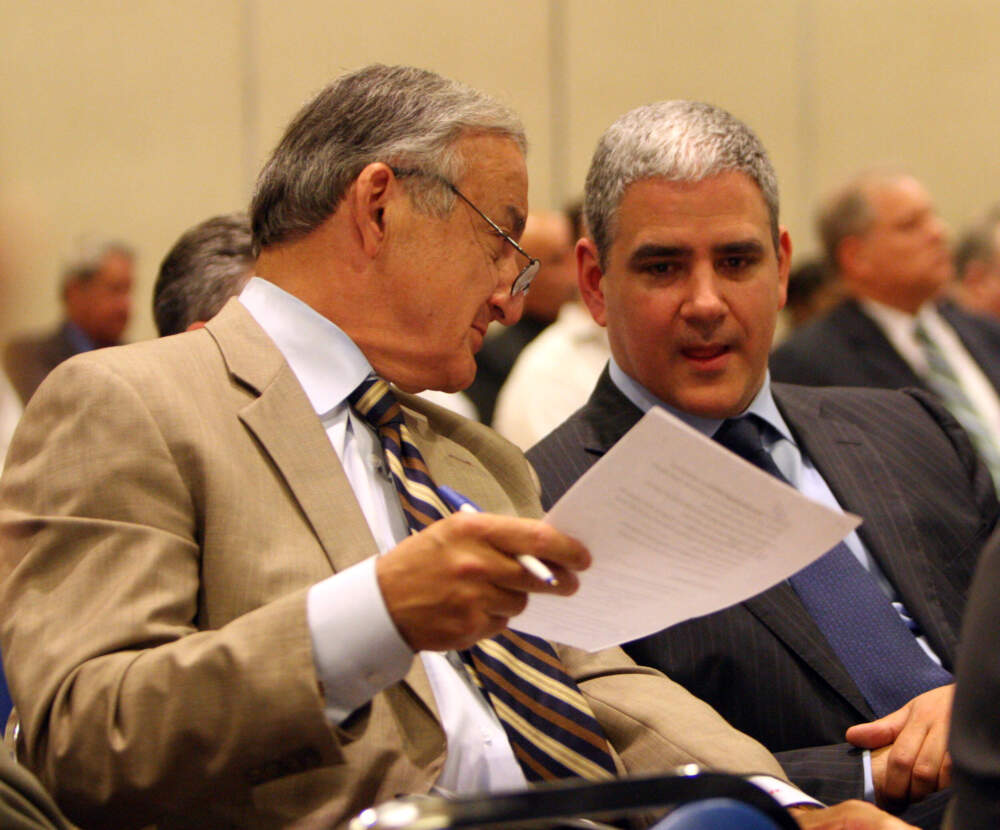
Many former colleagues and health care leaders describe de la Torre, 57, as an ambitious, sometimes brash, executive who helped save the struggling Caritas Christi Health Care, a six-hospital Catholic health care network. De la Torre made no secret of his plans beyond Caritas — and beyond Massachusetts. He oversaw the transformation of Caritas into Steward, a national company operating dozens of facilities in states across the country.
Steward declined to make de la Torre available for an interview. The company has blamed its financial problems largely on the COVID-19 pandemic and low reimbursement rates from Medicare and Medicaid, which insure more than 70% of its patients. Steward has also pointed out it pays taxes that nonprofit hospitals do not pay. But some health care leaders have suggested de la Torre's ambitions were too great, and he lost his way trying to create a national and international health care conglomerate.
'A visionary'
When he took the helm of Caritas in 2008, de la Torre promised to deliver a new model of care, one that would focus on helping patients in underserved and low-income communities. The idea was to coordinate patient care to avoid duplicating services and prevent errors. The model was encouraged by the Affordable Care Act, the landmark federal health care bill also known as "Obamacare."
De la Torre received numerous awards for his work. He once hosted then-President Obama at his Newton home for a Democratic fundraiser. De la Torre had written to the president suggesting his company's model could improve the health care system, not just in Massachusetts but nationwide.
At a 2014 fundraiser, de la Torre spoke passionately about his mission to provide people with "really good health care in their community — not just where they can afford it, but where they can access it."
"That's really what it's all about," de la Torre told the crowd at the benefit for Whittier Street Health Center, a Roxbury clinic that provides health care and social services for many low-income patients.
That year, the organization's annual roast honored de la Torre. Presenters took turns delivering jokes about de la Torre's notoriously prickly personality, his love of boats and his ego. Andrew Dreyfus, then the head of the state's largest insurer, Blue Cross Blue Shield of Massachusetts, imagined where de la Torre might be in 2024. He suggested de la Torre would likely be in charge of much of the Massachusetts health care industry.
"I'd like to propose a toast to Ralph de la Torre — a visionary, a leader and soon, no doubt, to be my boss," Dreyfus quipped.
Philanthropist and former advertising executive Jack Connors, the man some credit with putting de la Torre on a path to becoming a health care magnate, joined in the jokes at the fundraiser, suggesting that praise from de la Torre was an accomplishment.
"If [Ralph] were to pat you on the back, you would list it on your resume," Connors, now 81, said.
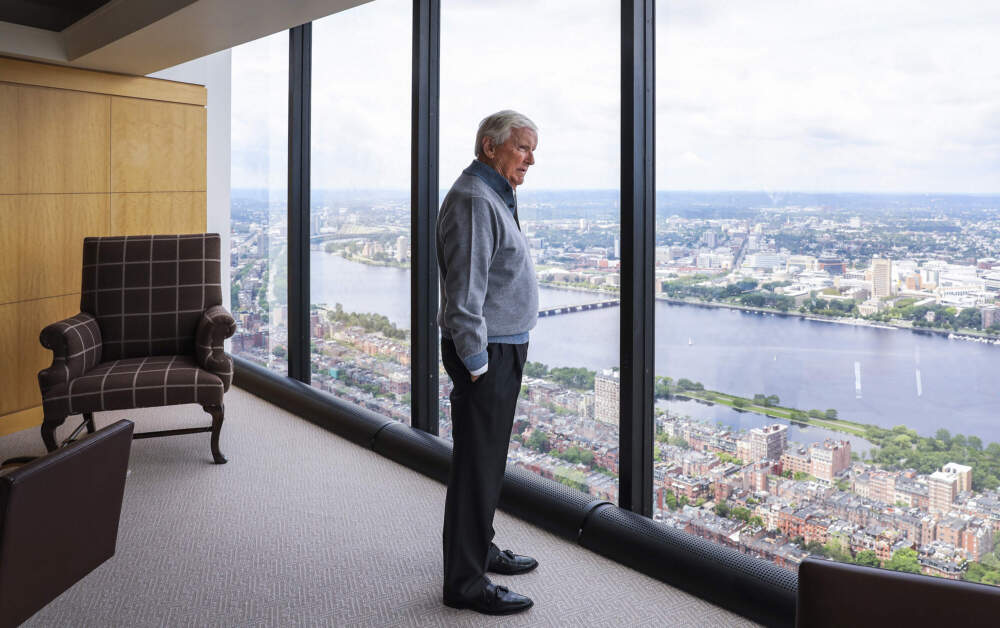
As chair of the board at Partners HealthCare, later rebranded Mass General Brigham, Connors introduced de la Torre to the people looking for the next leader at Caritas. Connors said a mutual friend introduced them. Connors knew of de la Torre's reputation as a surgeon and an innovator at Beth Israel Deaconess Medical Center. But Connors said he now believes de la Torre's objectives changed.
"Ralph decided that his first priority was to make himself wealthy," Connors said. "Several people tried to encourage him to spend more time with patients and learn their needs."
Still, Connors and others describe de la Torre as "brilliant." They point to his credentials as a graduate of Duke University, Harvard Medical School and MIT. Former colleagues use terms like "persuasive" and "hardworking" when talking about de la Torre, and mention his direction of the Cardiovascular Institute at Beth Israel.
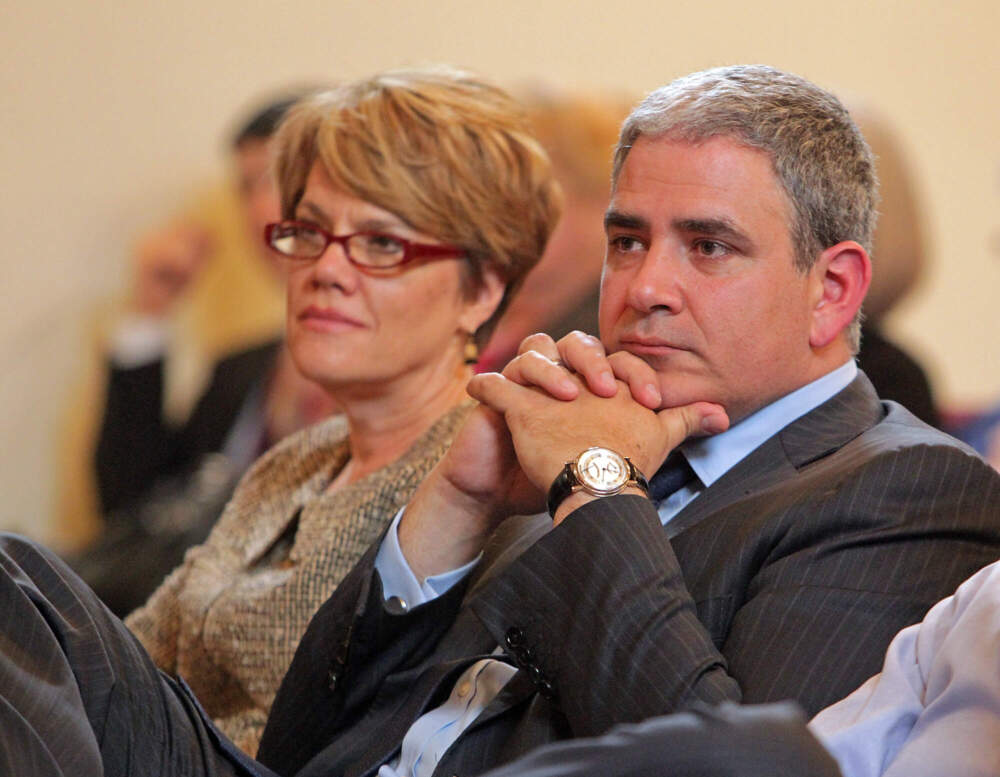
De la Torre's skills as a surgeon were widely admired, although his medical license has since expired. Yet even at Beth Israel, his ambition and personal style alienated some people.
"He was a very gifted surgeon," said Dr. Frank Sellke, former chief of cardiothoracic surgery at Beth Israel. "He's a very talented individual and very smart. But he's a bit on the aggressive side, and he doesn't take any prisoners in how he deals with things."
A few years into de la Torre's time at Beth Israel, he became chief of cardiac surgery and Sellke's supervisor. Sellke said he found the move surprising, because he didn't think de la Torre had enough experience. Sellke left Beth Israel and became a professor at Brown University's Warren Alpert School of Medicine and chief of the Division of Cardiothoracic Surgery at Lifespan Hospitals. He said he holds no ill will toward de la Torre, but hasn't been in touch with him since 2008.
Two deals that turned the tide
Although de la Torre has done few media interviews, he often mentioned during speaking engagements that his parents came to the U.S. from Cuba in 1960 and settled in Florida, where he was raised. While running Caritas, he lived in Newton with his wife and children, and the family summered on Cape Cod. He is now divorced.
Connors said he used to feel proud that de la Torre kept the Caritas hospitals running because the facilities were struggling under a mountain of debt when de la Torre took the helm. But along the way to building a national health care network, Connors said another side of de la Torre emerged. He became known for ostentatious symbols of wealth, such as a $40 million dollar yacht and expensive real estate — all acquired while running hospitals designed to serve vulnerable patients.
"I'm not opposed to people taking care of themselves, but he forgot to take care of the hospitals and the patients," Connors said.
Some of de la Torre's critics point to his 2010 deal with Cerberus Capital Management, a private equity firm, as a turning point. It was about two years after he became CEO of Caritas. The deal, which eventually gained approval from the state's attorney general, promised to provide approximately $400 million for capital improvements, with at least one major project at each of Caritas' six hospitals. It also promised an even larger sum to wipe away the system's debt and right its pension plans.
"I'm not opposed to people taking care of themselves, but he forgot to take care of the hospitals and the patients."
Jack Connors
The new owner of the hospitals would be Steward Health Care System, an affiliate of Cerberus helmed by de la Torre. The entry of a for-profit company into the state's health care landscape raised eyebrows at the time, but the prospect of shoring up the system's finances ultimately outweighed the concerns.
However, it wasn't until 2016 that another deal positioned Steward to become a much larger company. Under de la Torre's leadership, Steward agreed to sell all of its real estate — including the hospital buildings themselves — to Medical Properties Trust (MPT), a real estate investment firm. The deal brought in $1.25 billion for Steward, but the company would have to pay rent to MPT. Steward used part of the proceeds to pay back Cerberus for its initial investment, and then began acquiring hospitals across the country — and even beyond its borders.
Steward moved its headquarters to Texas a year after the deal. In 2020, a physicians group, led by de la Torre, bought out Cerberus entirely and obtained a controlling stake in Steward. Today, the company operates more than 30 hospitals in eight states and employs some 16,000 people in Massachusetts alone.
But it's also in serious debt. Earlier this year, MPT revealed that Steward owes $50 million in back rent, and it has loaned the company tens of millions of dollars. Because Steward is a private company, its financial documents and details of its executive compensation are not public. But a 2020 audit of Steward's books indicated the company had a $1.5 billion deficit.
Other financial reports show that in 2021, Steward paid MPT an $11 million dividend as part owner of Steward. Health care industry experts said that suggests even more money went to de la Torre and the Steward management team, since they have an even larger stake in the company.
Questions about Steward's future
Steward's facilities dot the eastern part of Massachusetts and include St. Anne's Hospital in Fall River, St. Elizabeth's Hospital in Brighton, Norwood Hospital, Holy Family Hospital in Methuen and Haverhill, Good Samaritan Medical Center in Brockton, Carney Hospital in Dorchester, Nashoba Valley Medical Center in Ayer and Morton Hospital in Taunton.
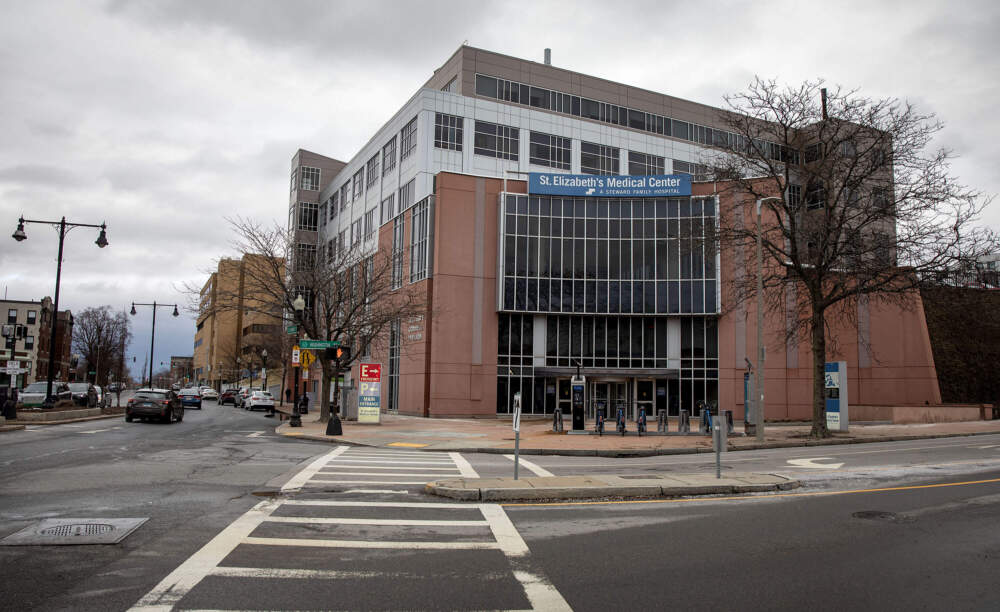
The company is in the process of closing New England Sinai Hospital, a rehabilitation facility in Stoughton. Steward had promised to renovate Norwood Hospital, which was damaged by flooding in 2020. It's unclear if the facility will ever reopen.
Although Steward executives have said they have no current plans to close any other Massachusetts facilities, several health care leaders in the state questioned the financing deal Steward announced last week to keep its operations in the state afloat. The company said the deal will allow it time to negotiate the sale of a separate physicians group, and consider transferring ownership of at least one of its medical facilities. The terms of the deal have not been made public, and state health officials said they will be monitoring Steward hospitals — including daily visits to some locations to ensure the quality of patient care.
When thinking about De La Torre now, Dreyfus, the former Blue Cross Blue Shield leader, described de la Torre as "a tough negotiator" who should get credit for helping to preserve some Massachusetts community hospitals.
"I worked with him fairly closely, and he always struck me as someone who was deeply committed to his organization," Dreyfus said. "I think now we just have to say, 'Well, we still have these important community resources, these important hospitals, out there and how can we stabilize them.' "
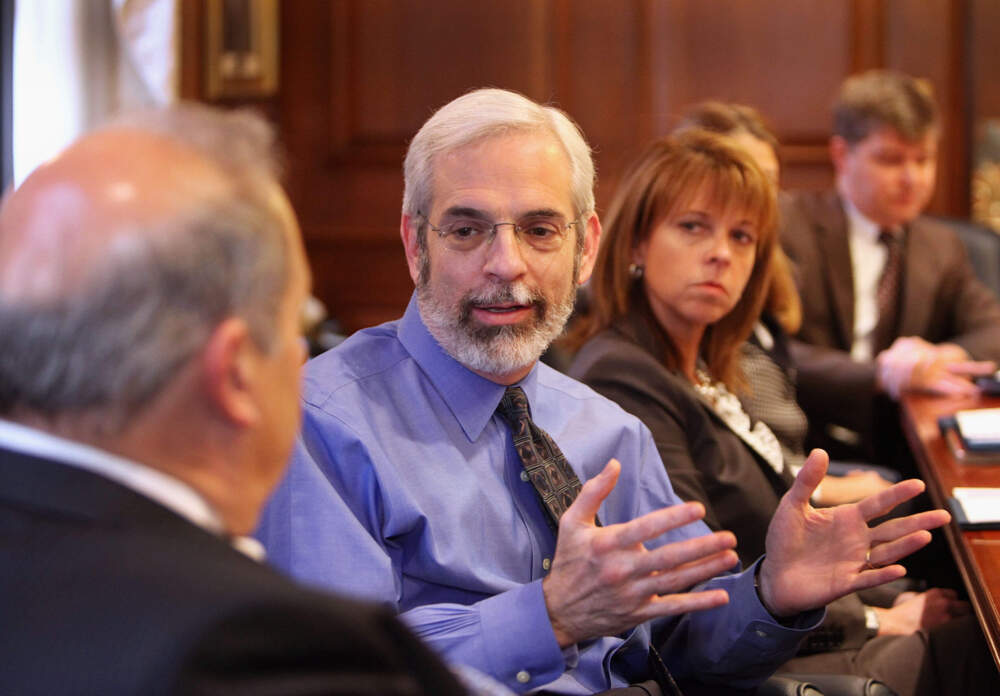
As for Jack Connors, he thinks he made a mistake by helping open doors for de la Torre. Connors can't recall exactly when he last spoke with de la Torre, but said it was at least five years ago when he declined de la Torre's invitation to be on Steward's board.
Connors expressed confidence state officials, such as health and human services secretary Kate Walsh, herself a former hospital administrator, will come up with ways to minimize the impact of Steward's financial struggles. But what Connors said he feels about de la Torre is "beyond disappointment."
"I'm kind of sick about it," Connors said. "This is Massachusetts, a place where people come from around the world to learn how to help other people. That's what I thought Ralph wanted to do and I was mistaken."
Correction: Due to an editing error Ralph de la Torre's title was incorrectly described as president and CEO of Steward Health Care. He is the chairman and CEO. We regret the error.
